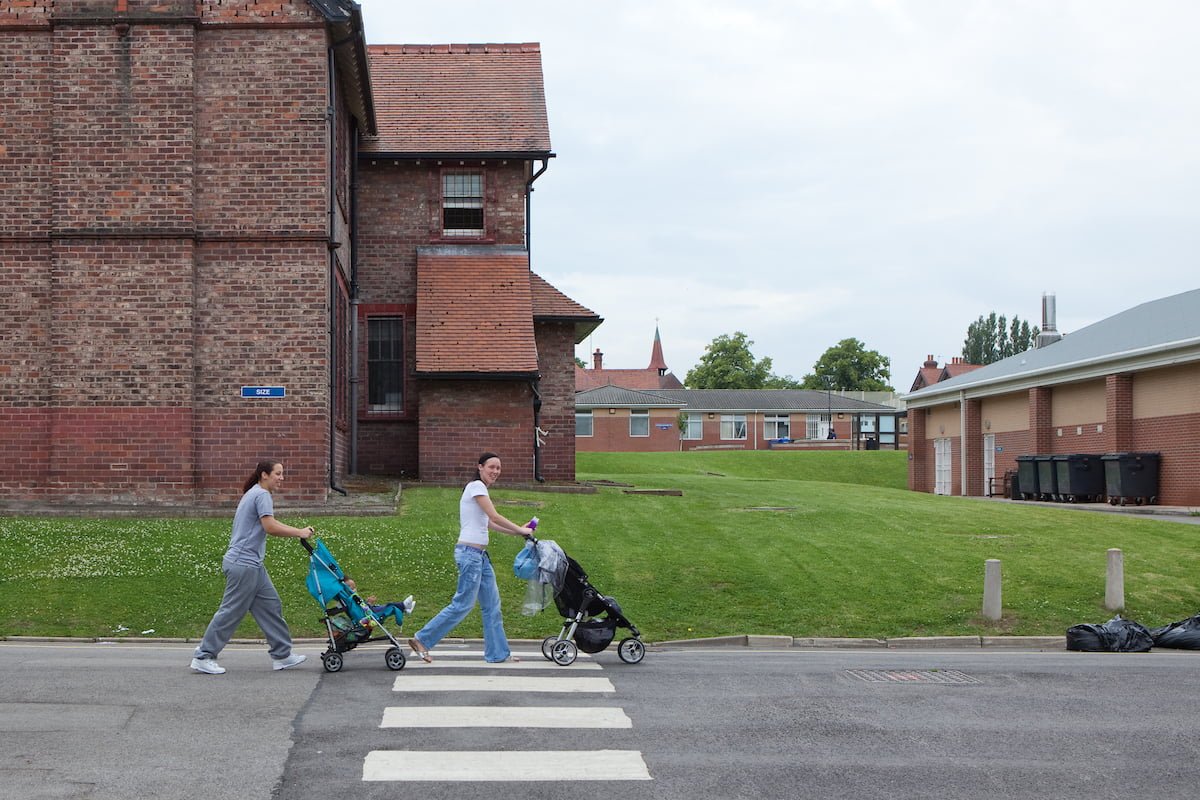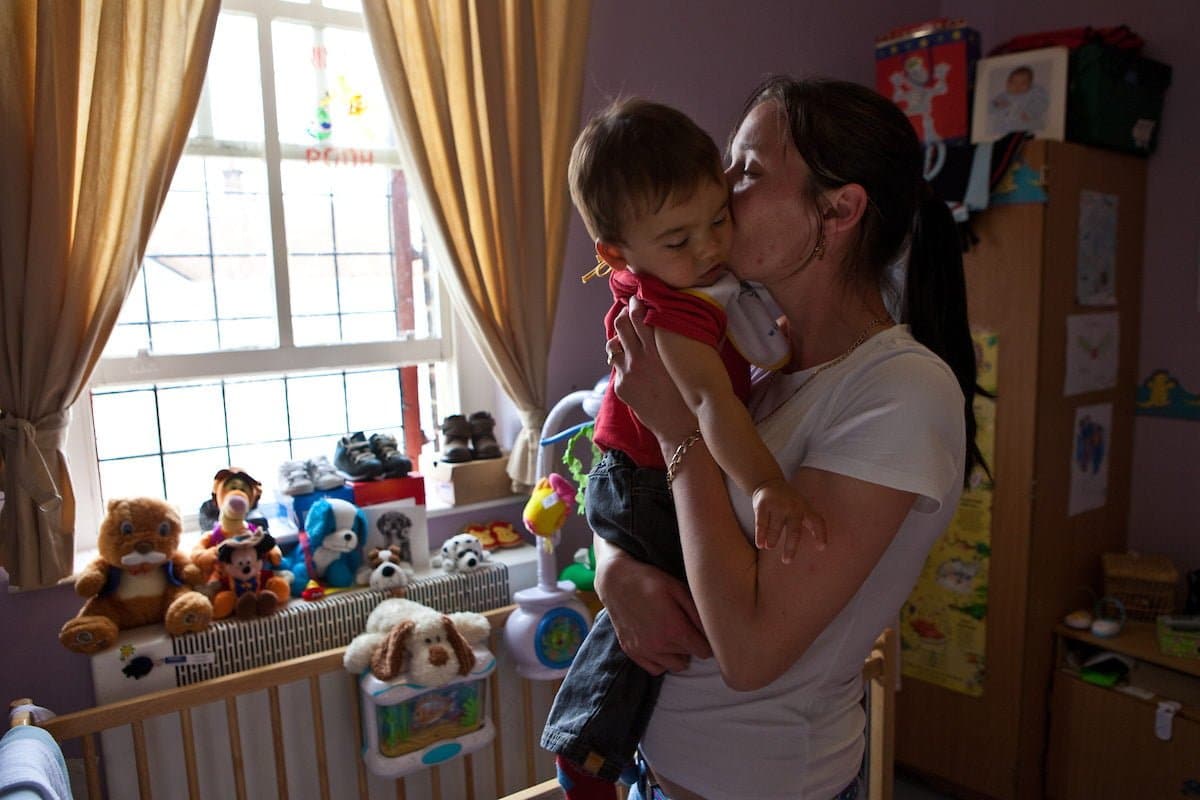Not again
This is a guest post by Lucy Baldwin (@LucyBaldwin08) Senior Lecturer/researcher in criminology and criminal justice at De Montfort University.
Friday 20th June was just an ordinary morning, just another day working in my study finalising a chapter for my Doctoral thesis…. And then it wasn’t just an ordinary day. It was another devastating day. Another baby had died in prison the night before. How could this have happened again? I was horrified, it is not nine months since the death of a baby born in a cell at HMP Bronzefield. This time, it appears neither the prison nor the mother herself knew she was pregnant, and so the Ministry of Justice urged Journalists not to report with blame in mind. However, it is difficult not to think negatively, when as I write this, the mother is still in prison, despite having only weeks remaining on her sentence why has she not been released? Why was she not released as part of the COVID19 early release scheme? – Perhaps then her baby would have lived? Why was she refused medical attention when she described crippling stomach pains, why was she given paracetamol and dismissed, why did she start her labour alone and almost give birth in a toilet? Just why?
This mother can’t have been in prison more than a few weeks if she entered prison pregnant and the baby was born at only around 24 weeks gestation. Therefore it is reasonable to assume, like most women, her offence was minor and nonviolent, and yet despite repeated calls to abolish short prison sentences for women, women, including pregnant women are still being sentenced to pointless, short periods in custody that often do more harm than good. My research and the research of others alongside and campaigns by organisations like ‘Women in Prison, Prison Reform Trust’ Birth Companions and the Joint Human Rights Committee in Maternal Imprisonment, have all consistently called for radical change concerning women and prison. Tragically such calls come after over 30 years of consistently evidenced and repeated calls to end, or significantly reduce the use of prison for women. Especially pregnant and nursing mothers and mothers with dependant children.
Prison healthcare system failings
Recent tragic events have highlighted yet again the failures of the prison system to grant equitable health care to its women prisoners. Earlier this year, The Nuffield Trust undertook research into the healthcare experiences of prisoners. Their report ‘Locked Out’, although not exclusively focussed on women, revealed that in a 12 month period across 2017/18 56 birth to women took place, and six of these women (1-10) women gave birth before they reached hospital. The women gave birth either in their cells or on their way to the hospital, raising questions about the timeliness of access to specialist care or guidance and support. There are no accurate figures in relation to the numbers of women who miscarry in prison as it is not recorded, however, I have spoken to many many women who have had this experience during the course of my research. In my 2017 small scale joint research project with Rona Epstein ‘Short but Not Sweet’ , two women (out of 17) miscarried in prison. Both women recounted asking for help and not being adequately responded to. Prison Officers are not midwives, they are not Doctors, they are not Nurses, yet they are being placed in positions where they are forced to make clinical judgements as to whether someone requires medical attention or not. Reportedly the officers who were present when the woman mentioned above gave birth to her baby were traumatised, they should no more be in that position that awful position than the woman herself.
Problems accessing medication
Access to equitable health care is a prisoner right, (gov.uk, 2018a; Penal Reform International, 2016; UNODC and others, 2013). Yet women in the ‘Short but Not Sweet’ study reported challenges in obtaining medication, and some were simply stopped and not reinstated when the women entered prison.
Two women told us they were refused HRT, which they had been prescribed outside, one was told she was simply ‘too young’ the other was not given a reason. Both women felt they suffered as a result of these decisions. Rose told us ‘ there was no understanding at all of my change (menopause) issues’. Lily who suffers from epilepsy and depression, reported having to wait five days before she received any medication. Several women, including two women who had previously attempted suicide and were on longstanding medication, had to wait several days, sometimes as long as three weeks, for their medication. It is well known it is dangerous to withdraw medication such as HRT, antidepressants and anti-seizure medication suddenly. All of the women reported feeling mentally unwell or anxious as a result of their health and wellbeing being compromised. One mother, Sally, reported
‘it took nearly a week to get my tablets (antidepressants), that was hard especially as I was the lowest id ever felt. I was suicidal being away from my kids’ .
Over-use of custody
Aside from access questions about equitable access to healthcare, we must ask ourselves about the appropriateness of custody for women at all. Sally, a mother of four children, a widow who was suffering from depression and in debt as a result of her husband’s recent death, was sentenced to 16 weeks for fraud. ’ Sally used a catalogue in a friend’s name, to order Christmas presents for her children. She stated:
‘I don’t think judges even think about our families when they sentence us – they say we should thinking about kids when we offend – well I was – I committed fraud to order Christmas presents for my kids. I knew it was wrong, but I couldn’t bear for them to have nothing’.
Sally’s children were left in the sole care of her eldest child, her youngest child being only four years old. Sally felt the very short time she was away from home, as well as compounding her debt issues and her depression has had a lasting impact on them all stating,
‘My kids are still affected by it. The little one has nightmares. I think my middle one is using cannabis. And my eldest daughter is old beyond her years because she had to look after her sisters when I was away. My middle daughter is still angry with me, but we’re getting there.’
Current guidelines (the Bangkok Rules) are such that Sentencers are supposed to reserve custody for women in only the most extreme of circumstances. Given the mother of the baby who died in Bronzefield was on remand, and the mother of the most recent dead baby was serving only a sentence of only a few short months, and Sally’s example, it is clear the guidelines are not being adhered to. What must occur instead of guidelines permitting Sentencer discretion, is their replacement with a mandatory requirement to ONLY sentence a pregnant or nursing mother to imprisonment if her offences was so severe and her risk of harm so high, that only a custodial sentence is warranted. In such an incidence, the rights of the mother and child to a healthy, safe and supportive and compassionate environment must be paramount. Unless this change is implemented, mothers and babies will continue to die in prison.
Thanks to Andy Aitchison for kind permission to use the images in this post. You can see Andy’s work here.









3 Responses
I hope this will not happen again. Thank you so much for sharing this!
Could someone who wrote this contact me please. I’ve only just seen this it was me who gave birth in styal would like to speak to somebody an maybe get some advice.
Hello- i am very interested in using the photos in this article in an upcoming documentary about Styal, please get back to me ASAP